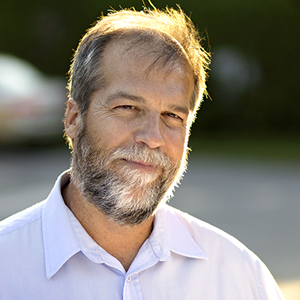
Stephen Harper's comments about the threat of "Islamicism'' strained the fragile trust federal officials built with Muslim Canadians in the fight against terrorism, says a former analyst with Canada's spy agency.
The frequently harsh tone Harper and his cabinet members struck with Muslims created a rift the new Liberal government must work to overcome, said Phil Gurski, who spent almost 13 years at the Canadian Security Intelligence Service before moving to Public Safety Canada.
Rebuilding trust will be an important element in national counter-extremism efforts by police and community groups, said Gurski, a specialist in radicalization and homegrown terrorism now working as a private threat and risk consultant.
"I think now that with a new government, we have at least the opportunity to start -- not with a blank slate -- but to kind of reset the relationship,'' he said in an interview.
This week marks the grim anniversary of two fatal attacks on Canadian soldiers by men with jihadist sympathies.
One year ago Thursday, Michael Zehaf-Bibeau shot Cpl. Nathan Cirillo, an honour guard at the National War Memorial, before rushing into Parliament's Centre Block. Zehaf-Bibeau was quickly gunned down.
Two days earlier, Martin Couture-Rouleau had fatally rammed Warrant Officer Patrice Vincent with a car in St-Jean-sur-Richelieu, Que. After a chase, police shot and killed the knife-wielding assailant.
Counter-radicalization work needs support: Gurski
Gurski said security agencies need to continue investigating potential threats, but the government must also do more to support police and community-led programs to stop young people from becoming radicalized in the first place.
He has distilled his insights into a book, The Threat from Within, published this week.
He praises grassroots counter-radicalization initiatives -- noting such efforts work better than government-run ones -- and lauds the police services active in the field, notably Toronto and Calgary.
In the federal sphere, Public Safety and the RCMP have guided the efforts, with CSIS playing a background role. At Public Safety, Gurski worked with the department's citizen engagement bureau.
"We fanned the country talking to communities, talking about radicalization, showing them what it looks like and then getting them to proffer their own solutions and their own ideas on how to counter it.''
People 'taken aback' by comments
But that bridge-building with communities was "certainly tested'' in September 2011 when Harper told CBC-TV the major threat to Canada "is still Islamicism.''
"I think people were taken aback by the comments,'' Gurski said. "And I think the question was asked, 'What does that really mean? Does he mean Islam is a threat to national security?'''
Gurski notes a similar tone in government messaging that followed on omnibus security legislation, the attempt to ban the niqab at citizenship ceremonies and the federal opposition to so-called "barbaric practices'' such as forced marriage.
Counter-radicalization programming simply doesn't work unless there's a relationship with community leaders, he said.
"Because if people don't trust you and don't like your message, they're not going to work with you, and they're not going to come out and listen to you. We've clearly seen that in the past, so you've got to fix the one before you can continue the other.'' ![]()
Read more: Politics, Federal Politics, Election 2015














Tyee Commenting Guidelines
Comments that violate guidelines risk being deleted, and violations may result in a temporary or permanent user ban. Maintain the spirit of good conversation to stay in the discussion.
*Please note The Tyee is not a forum for spreading misinformation about COVID-19, denying its existence or minimizing its risk to public health.
Do:
Do not: